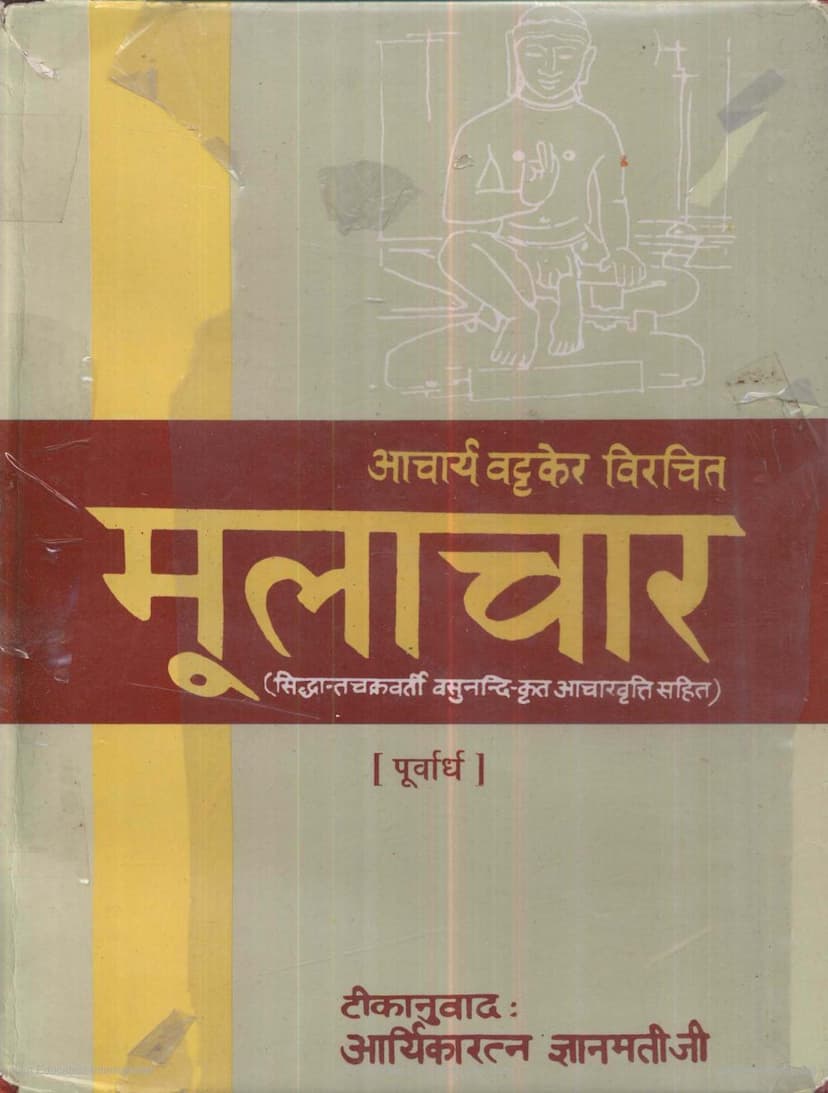Mulachar Purvardha
Added to library: September 2, 2025

Summary
This Jain text, "Mulachar Purvardha," authored by Vattkeracharya and translated by Gyanmati Mataji, published by Bharatiya Jnanpith, is a foundational and ancient text for Digambara Jain monks. It systematically details the conduct, practices, austerities, and virtues of mendicants. The book is presented in two parts, Purvardha (first part) and Uttarardha (second part).
The text is highly regarded for its antiquity and authenticity, with scholars identifying Vattkeracharya with the renowned Acharya Kundakunda. The current edition is a result of meticulous comparison of various Prakrit manuscripts and includes a Sanskrit commentary, "Acharyacharita," written by Acharya Vasunandi Siddhantachakravarti about 600 years prior to this publication. Esteemed scholars like Pt. Kailash Chandra Shastri and Pt. Jagannmohanlal Shastri reviewed and suggested corrections to the manuscript, which were incorporated by Aryika Gyanmati Mataji.
The "Mulachar" is divided into twelve chapters, covering topics such as:
- Mulaguna Adhikara: The twenty-eight fundamental vows and virtues of monks.
- Brihat Pratyakhyana: Renunciation of sinful actions.
- Sankshep Pratyakhyana: Concise renunciation.
- Samayachara: The daily conduct and discipline of monks from morning to night.
- Panchachara: The fivefold conduct: Darshanachar (conduct of faith), Gyanachar (conduct of knowledge), Charitrachar (conduct of virtue), Tapachar (conduct of austerity), and Viryachar (conduct of prowess).
- Pindashuddhi: Purification of alms received, detailing numerous faults to be avoided.
- Shatavashyaka: The six essential daily duties.
- Dvadashananupreksha: The twelve contemplations.
- Angara Bhavana: The contemplative practices of an ascetic.
- Samayasara: The essence of time, likely referring to spiritual practices.
- Shilaguna Prastar: The expansion of virtues and character.
- Paryapti: The fulfillments of life activities.
The text emphasizes strict adherence to the monastic code, discouraging any leniency in conduct. It also highlights the importance of the monastic community (sangha) and prohibits solitary wandering for monks, except under specific circumstances for highly accomplished individuals. The work also provides guidance on the conduct of female ascetics (Aryikas) and their spiritual leaders (Acharyas).
The summary provided indicates that the text delves into detailed discussions on various aspects of monastic life, including purification rituals, daily observances, the nature of virtues, and the path to spiritual liberation. The translation and editing by Aryika Gyanmati Mataji aim to make the profound meaning of this ancient text accessible to seekers of Jainism. The introductory editorial and the translator's preface further elucidate the historical significance and the philosophical depth of "Mulachar."